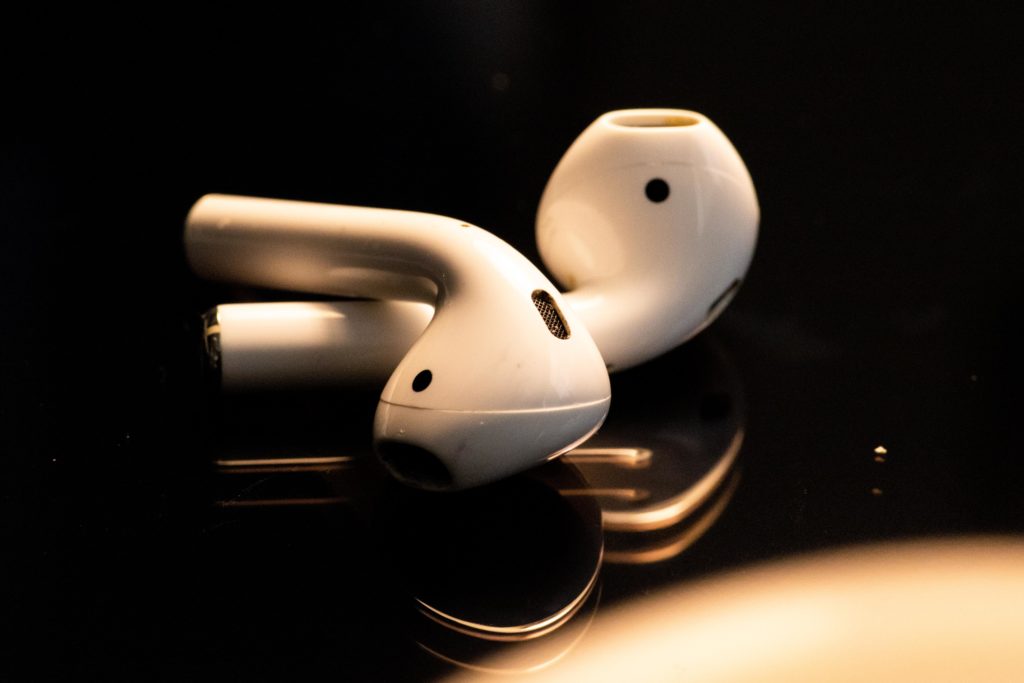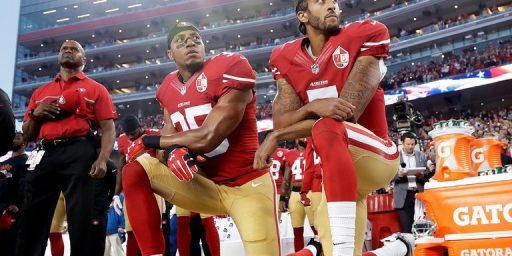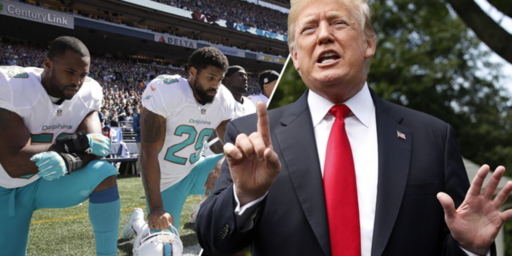Podcast Recommendation
A podcast about podcasting

This is a non-political recommendation: Nicholas Quah of Hot Pod‘s interview on Culturally Relevant with David Chen.
This is sort of meta-blogging recommendation insofar as the interview is about the podcast industry and how it is evolving (e.g., the move by Spotify to become a podcast distributor and the implications thereof). What struck me about the interview is that the evolution of podcasting sounds very much like the way blogging evolved: from a wild west with open access and an ability of anyone to start their own, and even be quite successful to a world wherein larger corporations become the major players.
Indeed, blogging is largely dominated by major media outlets these days, and one can already see significant larger outlets (such as ESPN and the NYT getting into podcasting).
Beyond the parallels to blogging, I found the discussion of interest because I am an avid podcast listener.






To be fair, The BS Report was popular for ESPN from its inception in 2007.
I’ve long said that the best guitar player in the world is some dude in rural Mississippi who sits on his porch every night playing Blues. I have the sneaking suspicion that outside of a few prominent folks, the same is likely true of writers and thinkers. Nothing sells better than middling mediocrity.
@Kurtz:
Quite true.
It just strikes me how back in the day a person just started a blog and it either attracted readers or it didn’t a person who was nobody could gain wide recognition (my old site was mentioned on CNN and MSNBC and was part of a question on “Wait, Wait, Don’t Tell Me”). That could still happen, but it is far harder. A lot of bloggers from that era (Drezner, McArdle, Yglesias, etc.) have professional gigs and the general “blogosphere” really doesn’t exist as it did.
Podcasts have some parallels–a recorded and an RSS feed was what you needed. And lot of “nobodies” created them. Now, people like Conan O’Brien and a bunch of other celebs have podcasts (and a lot of major media outlets have their own).
I just find the evolution interesting (and, I suppose, a predictable one).
I guess some people start making money off their podcasts, as I assume some did with their blogs, and then the big companies pounce to get in on the action God forbid there’s a dollar to be made they’re not making.
I’ve no clue how much money there is in podcasts. I know of one podcaster who’s said he makes enough to do it as a full time job, and I suspect others are making out ok through donations and associated merchandise (T-shirts, prints, mugs, books, etc.) and ads.
Others have jobs that pay well, or other income, and the podcast is a sideline, sometime s a seasonal one. People like Malcolm Gladwell, Michael Lewis, or Steven Dubner.
I do know when big companies get involved, the small independents find it harder to gain traction without attracting the attention of the big players, and getting a spot in their limelight.
@Kathy:
Exactly. It changes the dynamics of the game.
There was a time I actually made a little money off PoliBlog (although not really enough to pay operating costs most of the time). I know James was making a decent amount from OTB at one point (and there was even a point wherein the authors here made beer money). Those days are gone.
@Steven L. Taylor:
This post was much longer. I intended on using music as a more fleshed out and interesting exploration of my last point. But my posts are becoming too long for comment sections–they end up feeling pedantic and out of place.
I know you’re busy, but is there any way I can e-mail you? I have a couple questions that I think you in particular can help answer.
I didn’t intend my comment to seem combative.
I agree with you about the evolution of podcasts and its parallels to blogging. The Simmons podcast was kind of on its own at the time. In fact, his career is probably the textbook example of your contention.
A writer with style and humor tends bar and maintains an independent website. He gets enough recognition that ESPN hires him.
He starts a podcast at ESPN before they became a phenomenon. Conceives 30 for 30. Starts Grantland. Crashes out of ESPN for being a little too outspoken about Goodell’s fecklessness. Starts The Ringer which is a podcast powerhouse.
All of that happened because he was on the leading edge of blogging in the late 90s. He was on the leading edge of documentaries with high production values and podcasts.
A couple other nuggets here:
-ESPN’s podcasts are mostly shit. The Barnwell NFL pod is good, but mostly because he is awesome. More on him in a second.
I tried to listen to Pin/Kings when it released. With a good storyteller, that could have been great. It ended up sounding like frat boys talking about the party they threw the night before.
–The Ringer is a decent website with decent writers and good podcasts. But it ain’t Grantland. The latter probably could never make money, because the stable of writers was so good that revenues could never keep up.
-Barnwell staying at ESPN hurt both himself and The Ringer. His podcasts with Robert Mays were great–they had rare chemistry and their approaches to analysis were different enough to provide organic contrast. Now neither of them have an ideal partner.
These are examples of market forces lowering quality.
@Kathy:
See my last post for the Simmons example. It was recently reported by WSJ that Spotify is/was interested in buying The Ringer specifically for its podcast network. Here is a little analysis.
A caveat here is in order. Simmons certainly built enough of an audience blogging to get noticed by ESPN. But he eventually ended up an early podcaster and on TV as an NBA analyst. It’s hard to envision how he could have built The Ringer without the recognition ESPN’s platforms allow.
Another example worth looking at would be Sam Harris. Like Simmons, he was prominent before his podcast, so he isn’t an example of someone who leveraged podcasting into a new career. But their examples give some insight into market conditions.
He refuses to run ads. His reasoning is that it would compromise his intellectual integrity, regardless of the product advertised.
He initially relied on supporters via Patreon. Supporters got a few extra podcasts, early access to event tickets, and other perks. He also released a subscription-based meditation app that granted the same podcast perks to members.
Unfortunately this model was not sustainable. Recently, he started releasing truncated versions of episodes for free with the full episodes behind a paywall.
He straddles a strange line. This episode discusses the idea that information should be free. He definitely doesn’t think it should. To his credit, if you e-mail his team expressing that you do not have the means to subscribe, they will give you access.
I would imagine that running ads is the only model that works. I’m guessing that Simmons’s network is largely anchored primarily by his own episodes and a handful of others. Harris has tried, so far unsuccessfully, to find a financially viable alternative to ads.
In the end, it looks as if, as usual, big business will become the gatekeeper.
@Kurtz:
I didn’t interpret it as such. I concut the Simmons really does fit the pattern I was alluding to.
Feel free to email (dr.sltaylor at gmail)
@Steven L. Taylor:
I don’t know why I thought you may have read it as combative. I re-read your comment and thought, “huh?” Brains are strange.
Being part of a question on “Wait, Wait, Don’t Tell Me” should be a huge point of pride. 😉
One of my high school teachers told our class that as he approached middle age, he had to come to terms with the fact that he would never be mentioned on NPR.
I will e-mail sometime soon. I appreciate the open door.